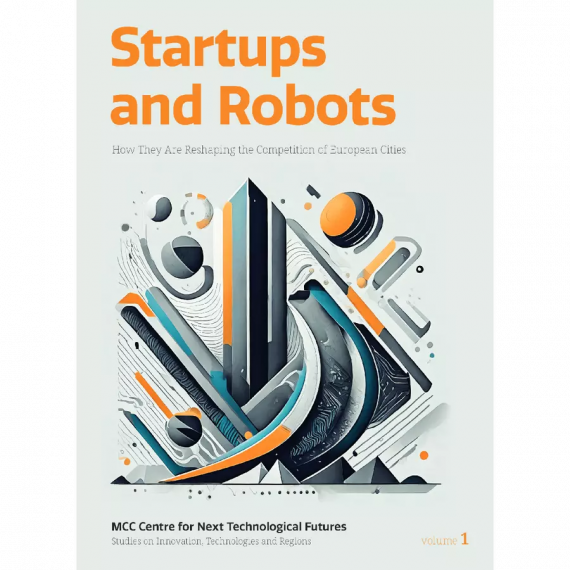As cyberpunk writer William Gibson famously said, “The future is already here—it’s just not evenly distributed.”This ironic statement is particularly relevant when we look at the map of innovation and entrepreneurial ecosystems in Europe, where we can easily see deep regional imbalances.But while the future of technology is nearly impossible to predict, it could be discovered by those companies—the startups whose basic working method is trial and error. In addition, the current deafening hype around artifi cial intelligence is also reigniting the debate about robots and their impact on our economy and society. And these are the main reasons this book is about startups and robots.
The studies conducted at the Centre for Next Technological Futures, Mathias Corvinus Collegium, Budapest, raise questions such as: How does geographic proximity to venture capital affect startups at different stages of development? While startups in Europe are concentrated in a handful of large cities, what opportunities do smaller cities have that specialise in Industry 4.0? What factors influence the use of industrial robots in different European countries, and how does the story of industrial robots differ from the emerging new story of robots in the service sector? Incubators and accelerators can increase the chances of survival of startups, but are those institutions that only chase a quick return on investment really the most successful?


